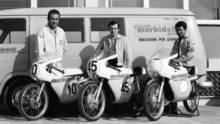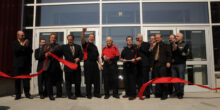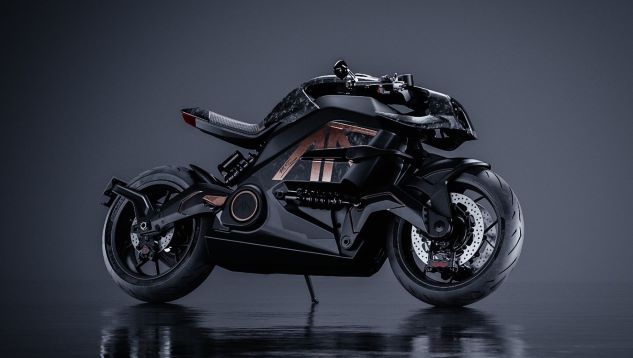April 5, 2010: ‘This recession is a game changer’
By Neil Pascale
Editor
The post-recession sport bike market of 2010 figures to be a condensed version of its recent past and minus one player in Buell. But has anything else permanently changed about an on-road segment that previously was creeping in size toward the cruiser market, the largest on-road segment in the United States?

Smaller European manufacturers coming off a year in which their overall U.S. sales declined but market shares notably increased have openly wondered if the U.S. sport bike market won’t turn into a closer mirror of the European market in terms of market share. There, metric manufacturers as a whole have a sizeable market share advantage, but considerably less than what is seen in the United States.
Others believe the market share shifts seen in the past year in the sport bike market are not indicative of the future, but merely a reflection of an incredibly strange time in the industry.
“Market share, right now, is a very difficult thing to judge by because the variables have changed so drastically in the last 18 months,” said Rod Lopusnak, the national sales manager for American Suzuki Motor Corp. “I don’t disagree that the market share numbers may change for a long time due to this, but right now what we’re seeing I don’t think is realistic.”
In 2009, the U.S. sport bike market performed slightly worse in retail sales than the overall on-highway segment, which fell 41.5 percent compared to 2008, OEM officials say.
“I think this recession is a game changer,” Ducati North America CEO Michael Lock told the brand’s dealer network at its recent North American meeting. “We’re now starting to plan for a post-recession motorcycle industry that is more balanced than the one that went in. And by balanced I mean the balance of power between the different brand types.”
Lock generalized the European sport bike market, noting the metric brands there carry
50-60 percent of the market share. Recent statistics from the U.K. motorcycle trade group showed metric OEMs held 59.5 percent of the market share in February. “All the others have the remaining 40 percent, of which BMW, KTM, Triumph, us are more substantial players,” said Lock, who worked in the United Kingdom before coming to the United States. “We’re still niche. We’re still premium, but we’re not boutique like we had been over here.”
Lock used the 750cc and over sport bike segment as an example. Here, Ducati has seen its market share approach 10 percent, a noticeable improvement over prior years. “The lines are getting blurred,” he said of the difference between the market share leaders and those following in their footsteps.
In February, Triumph officials announced at its dealer meeting that its North American sport bike sales were down, but that sales decline was nearly 50 percent better than the industry as a whole.
No doubt another European brand, BMW and its new super bike, also will play a role in a changing U.S. market share landscape in 2010.
It’s a landscape that Suzuki’s Lopusnak says has been shaped by hugely aggressive promotions or discounts, many of which will not be repeated after this spring or summer, meaning their impact on the current market share will not stand the test of time.
“The economic challenges have forced all the OEMs to pick and choose certain models that they became extremely aggressive on,” he said, referring to promotions seen within the past six months. “Auctions have had an effect on it. There are so many variables that have changed market share that I think the changes that we’ve seen are due to a cleaning-out process. It really has nothing to do with the nature of the product or brand or anything.”
He cited a recent competitor’s aggressive promotions that put the cost of some 1000cc sport bikes under the cost of smaller-displacement 600cc bikes.
“It’s very difficult to say that market share right now is really relevant,” Lopusnak said, noting manufacturers are still trying to grasp the size of the new market. “We still have to find the ‘new normal.’”
Ducati dealers were shown a slide at the brand’s recent national meeting that showed market share for the 750cc and over sport bike category, with Ducati being one of only two brands showing any increase in 2009 market share.
“I think there is a very real possibility that we come out of the recession and the industry is permanently altered,” Lock said of the sport bike climate, “that Ducati having 7 percent market share is not remarkable.”
Whatever changes the sport bike market share sees in the future, industry officials do agree on one point about the here and the now.
“If you’re a customer right now, there’s never been, in my 30 years, a better time to buy a motorcycle,” Lopusnak said. “You can get incredible, state-of-the-art product at ridiculous prices right now.”








